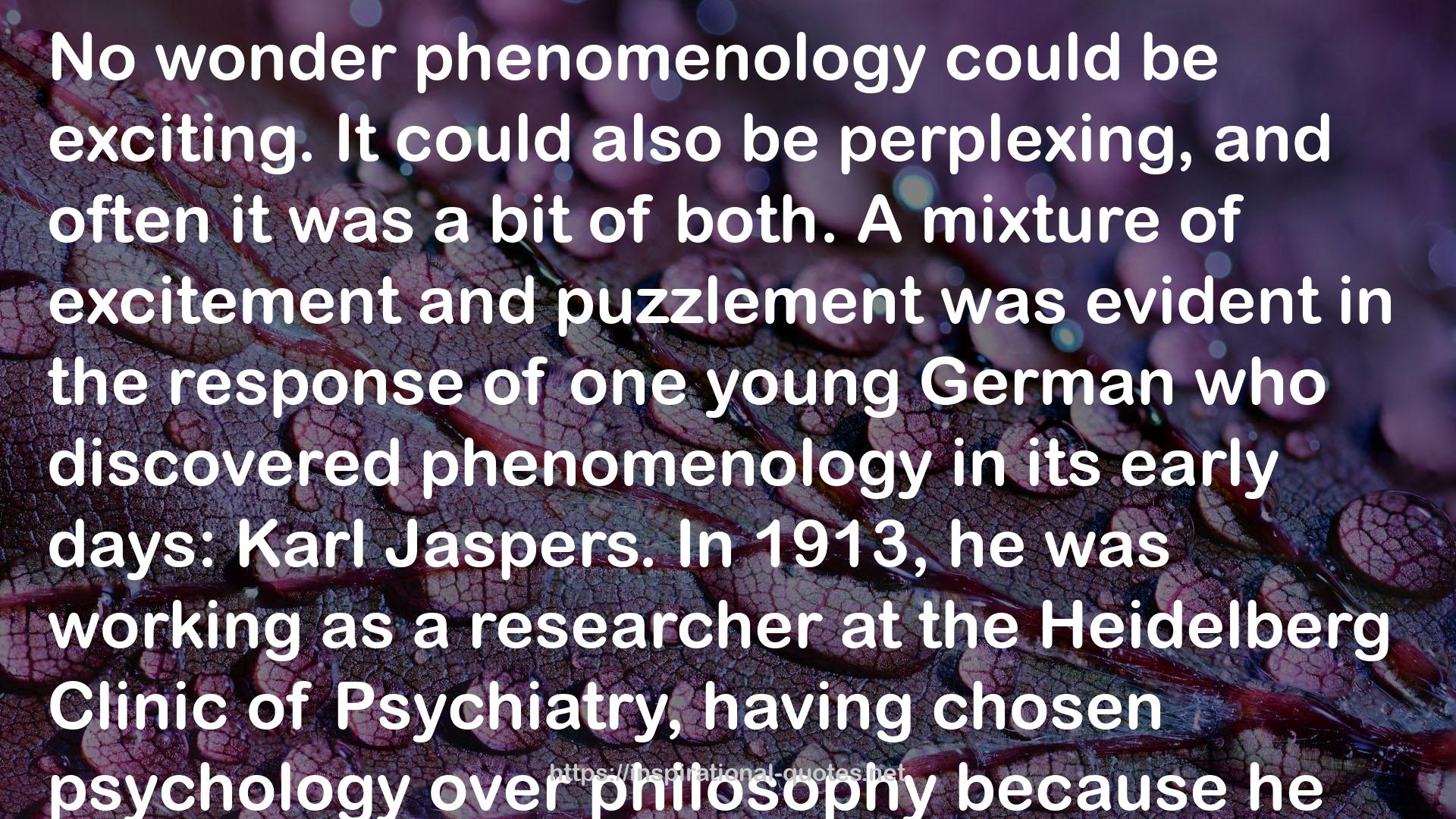" No wonder phenomenology could be exciting. It could also be perplexing, and often it was a bit of both. A mixture of excitement and puzzlement was evident in the response of one young German who discovered phenomenology in its early days: Karl Jaspers. In 1913, he was working as a researcher at the Heidelberg Clinic of Psychiatry, having chosen psychology over philosophy because he liked its concrete, applied approach. Philosophy seemed to him to have lost its way, whereas psychology produced definite results with its experimental methods. But then he found that psychology was too workmanlike: it lacked philosophy’s grand ambition. Jaspers was not satisfied by either. Then he heard about phenomenology, which offered the best from both: an applied method, combined with the soaring philosophical aim of understanding the whole of life and experience. He wrote a fan letter to Husserl, but in it admitted that he was not yet quite sure what phenomenology was. Husserl wrote back to him, ‘You are using the method perfectly. Just keep it up. You don’t need to know what it is; that’s indeed a difficult matter.’ In a letter to his parents, Jaspers speculated that Husserl did not know what phenomenology was either. Yet none of this uncertainty could dim the excitement. Like all philosophy, phenomenology made great demands on its practitioners. It required ‘a different thinking’, Jaspers wrote; ‘a thinking that, in knowing, reminds me, awakens me, brings me to myself, transforms me’. It could do all that, and also give results. "
― Sarah Bakewell , At the Existentialist Café: Freedom, Being, and Apricot Cocktails
